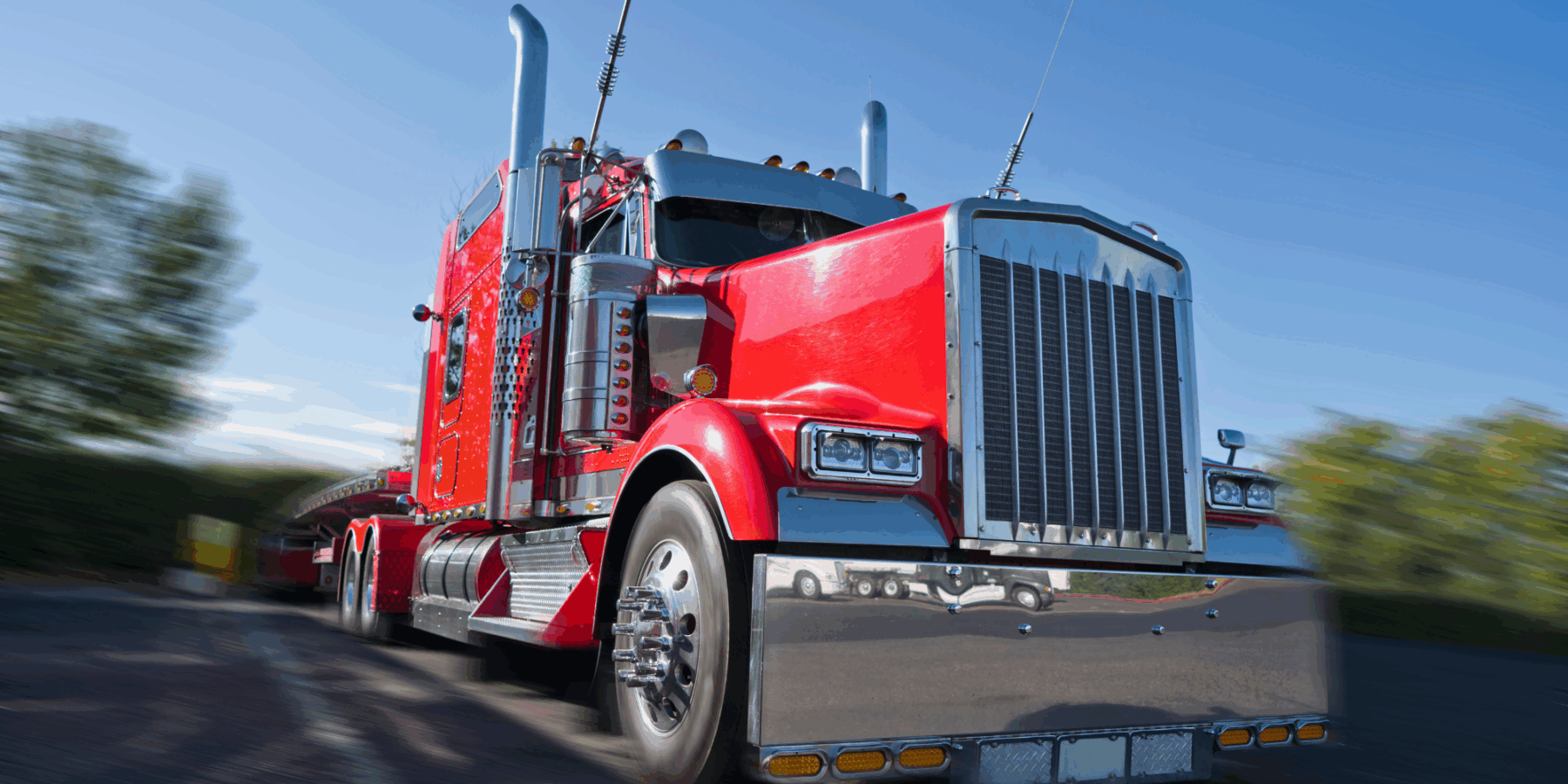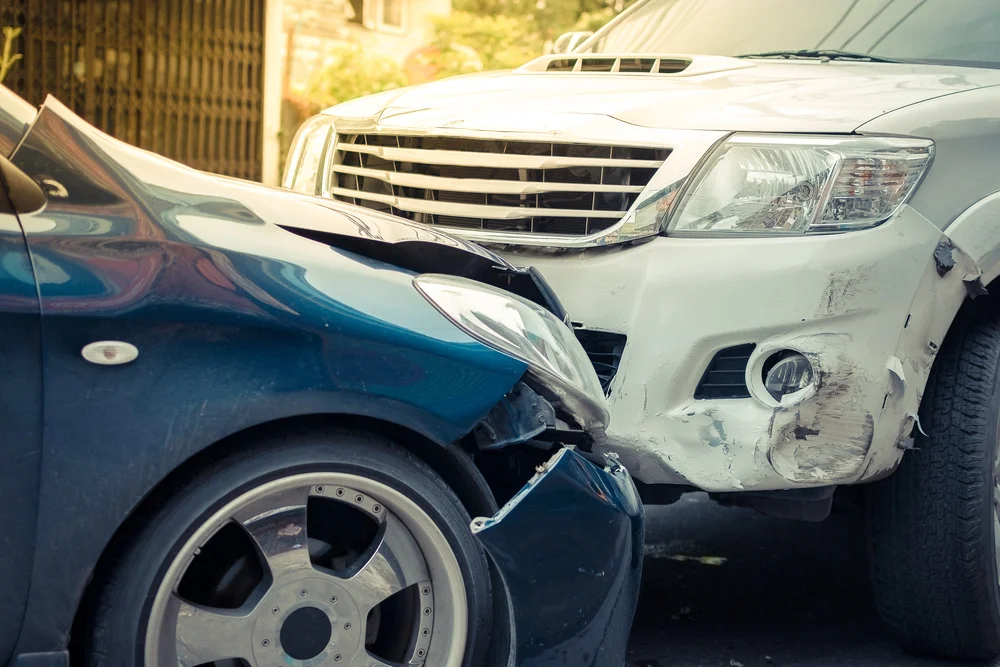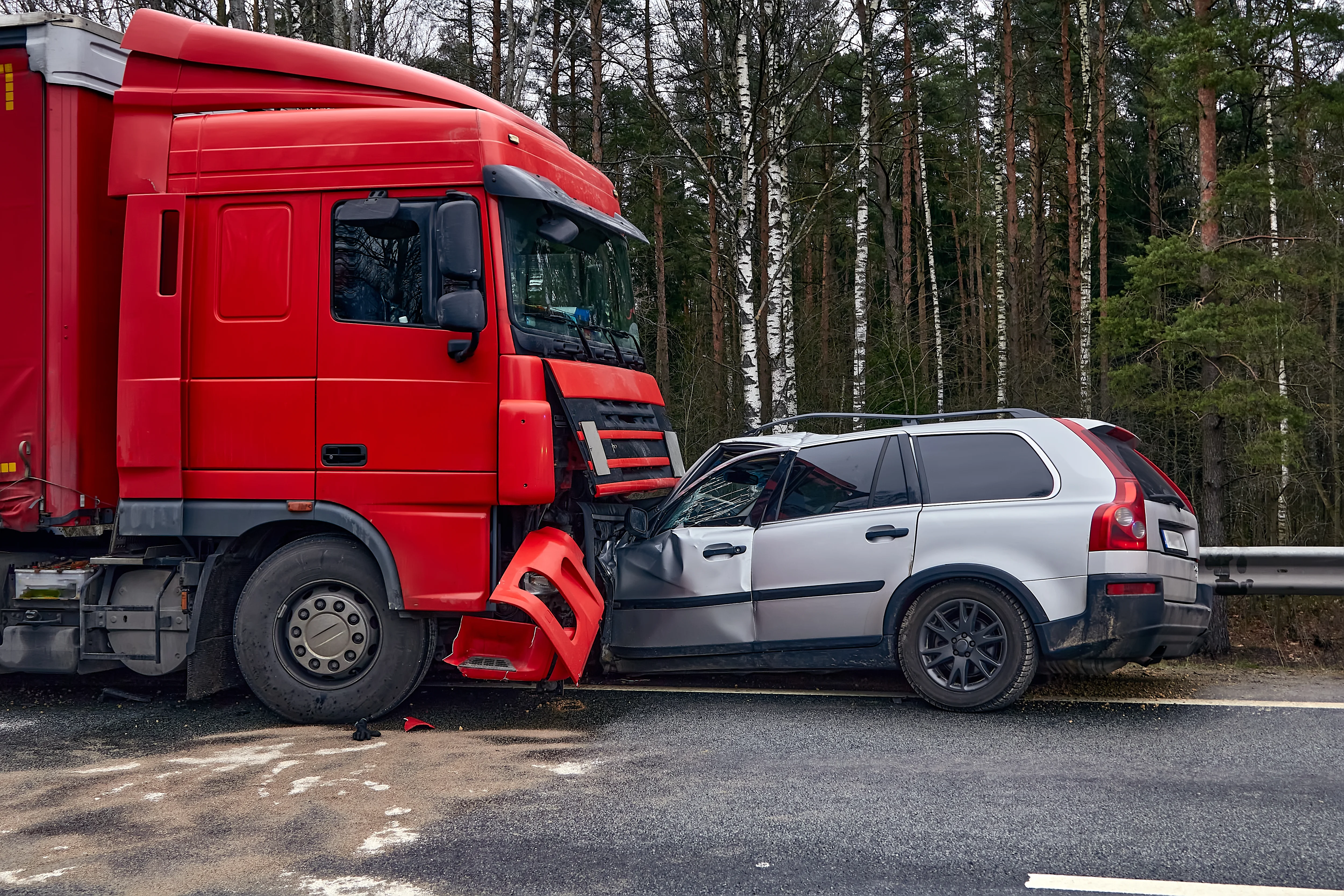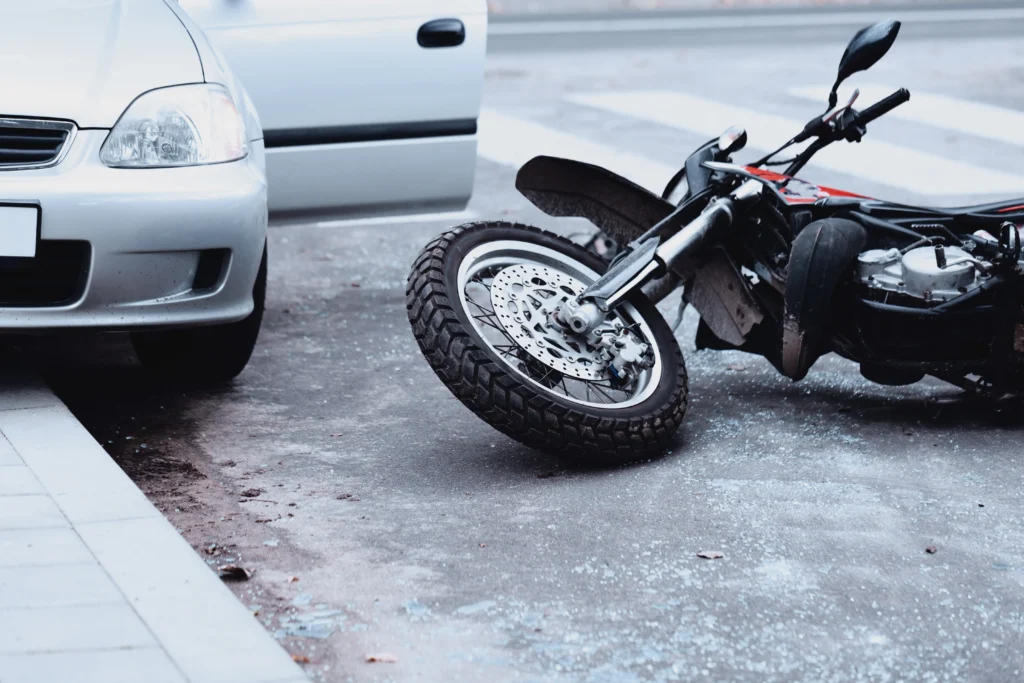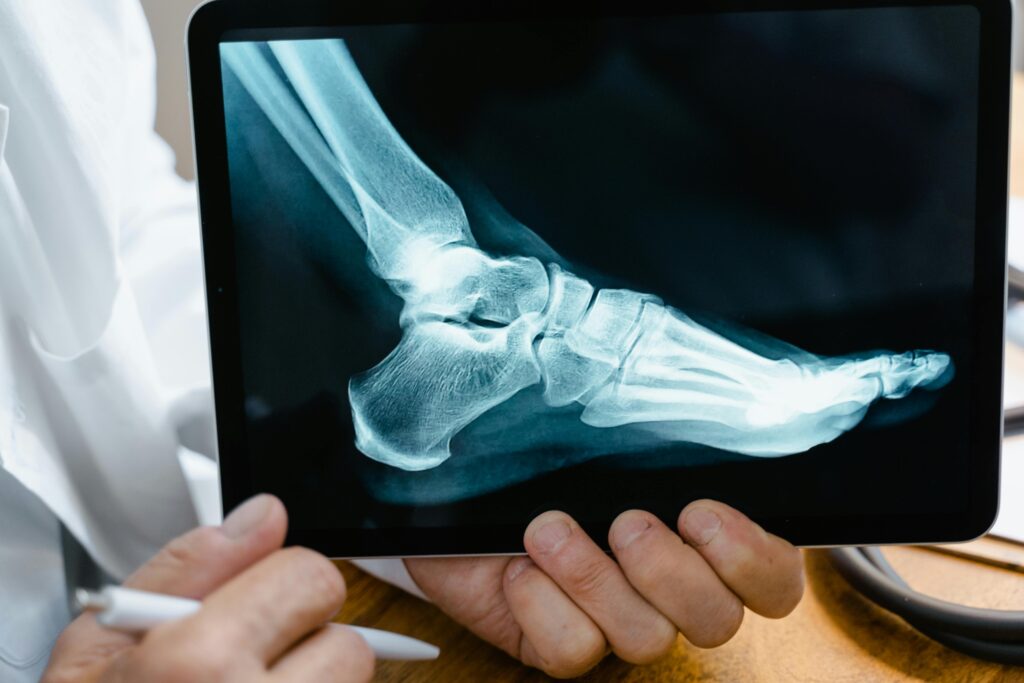Colorado Big Rig Accident Attorneys Fighting for Justice
Colorado highways such as I-25, I-70, and I-76 carry massive volumes of commercial trucks every day. With that volume comes an increase in violent and often deadly big rig crashes. These crashes involve 80,000-pound trucks colliding with smaller vehicles and creating catastrophic injuries. Jordan Levine leads a legal team built to take on these high-stakes truck accident cases across Colorado.
From rollovers in the Rockies to underride crashes in Colorado Springs, the impact on victims and families is severe. Trucking companies try to avoid liability. They use corporate lawyers and insurance adjusters to shift blame. Our firm does the opposite. We investigate, preserve vital evidence, and pursue full financial recovery. Jordan Levine fights aggressively to hold every negligent party responsible.
According to the Colorado Department of Transportation (CDOT), fatal truck crashes continue to rise across the state. Colorado’s terrain, winter storms, and highway congestion create dangerous driving conditions. When big rig drivers push through fatigue or overload trailers, the public pays the price. Our firm stands for victims. We deliver strong legal support with a deep understanding of Colorado law. See data on freight safety from the Colorado Freight Plan (CDOT).
Colorado’s Highway Freight System Is Risky for Passenger Drivers
Colorado’s commercial trucking system brings essential goods across mountain passes, dense city routes, and rural highway corridors. The same system creates serious dangers for regular drivers. Big rig crashes in Colorado have increased year after year. According to federal data, the state ranks among the most dangerous for truck-related fatalities per capita.
Routes like I-70 through Vail Pass and I-25 through Denver carry heavy loads and heavier risks. Truckers face steep grades, sudden weather shifts, and construction zones. Many big rig drivers work long hours with little rest. These conditions lead to fatigue, late braking, and loss of control. Jordan Levine and his legal team understand how and where these accidents happen. They use this insight to build strong injury claims.
The Colorado Motor Carriers Association warns that cargo delays and delivery quotas often push drivers past legal limits. When that pressure leads to a crash, it is rarely the truck driver who suffers. It is the driver of a smaller vehicle who faces the consequences. These crashes often involve critical injuries, damaged vehicles, and long-term medical needs. The Colorado Department of Transportation reports hundreds of commercial truck accidents every year. Many of these involve preventable driver errors or failed maintenance.
What Really Causes Colorado’s Worst 18-Wheeler Wrecks?
Understanding the causes behind 18-wheeler accidents helps victims build stronger legal claims and avoid future harm. Most big rig crashes in Colorado result from avoidable human error, mechanical failure, or violations of federal trucking regulations. Jordan Levine investigates every crash thoroughly. His legal team uncovers the root cause to hold each party accountable. Below are the leading causes of commercial truck accidents across Colorado highways and cities.
Driver Fatigue Behind the Wheel
Fatigue ranks among the top contributors to deadly truck crashes across Colorado. Federal law limits driving hours, but many truckers push past those limits. They do so to meet delivery demands or satisfy employer quotas. Drowsy driving reduces reaction time and awareness. That means delayed braking, drifting, and missed signals. High-elevation routes like Wolf Creek Pass demand full attention. When truckers drive while tired, they put everyone around them at risk. Jordan Levine reviews black box data and logs to prove fatigue-related negligence.
Overworked Delivery Schedules
Trucking companies often demand impossible delivery times across challenging routes. These companies expect drivers to meet tight deadlines across long distances with no margin for error. From Grand Junction to Colorado Springs, pressure builds quickly. This leads to speeding, skipping breaks, and ignoring traffic rules. Drivers may take unsafe detours or fail to stop in hazardous conditions. Jordan Levine uses route records and employer communications to show how corporate scheduling pressures contribute to crash risks.
Poor Vehicle Maintenance
Trucking companies must inspect and service each vehicle regularly. Many ignore these duties. They send 18-wheelers onto the road with bald tires, weak brakes, or defective lighting. Colorado’s elevation changes and winter storms push poorly maintained rigs past their limits. Brake failure on steep grades can lead to deadly results. Jordan Levine works with vehicle inspectors and accident reconstruction teams. His firm proves when mechanical failure caused injury or death due to maintenance neglect.
Inadequate Driver Training
Not all truck drivers understand how to handle an 80,000-pound vehicle on Colorado’s mountain passes. Inexperienced drivers may panic during downhill curves or fail to control speed in bad weather. Others do not know how to balance cargo, use retarder brakes, or check blind spots. Federal law requires specific certifications and training hours. Jordan Levine investigates each driver’s history. If companies hire unqualified drivers or skip training, they face full legal responsibility.
High-Impact Crash Types in Colorado Big Rig Accidents
Understanding how big rig crashes happen across Colorado is essential for building strong legal cases. Each crash type creates unique injury risks and legal strategies. Jordan Levine evaluates every wreck to uncover exactly what went wrong. Below are the most dangerous types of truck crashes we handle on Colorado’s highways.
Jackknife Accidents on Colorado Mountain Routes
Jackknife crashes happen when a truck’s trailer swings out sharply, forming a V or L shape with the cab. These collisions frequently block several lanes of traffic and involve multiple vehicles. In Colorado, jackknife crashes occur often on steep and winding routes such as I-70 near Vail or Eisenhower Tunnel. Drivers who speed, brake too late, or face icy roads lose control fast. Shifting cargo and driver fatigue also increase risk. Jordan Levine and his team examine logs, load records, and black box data to prove liability when jackknife crashes injure victims.
Rollover Wrecks on Colorado’s Steep Grade Highways
Rollover accidents are another deadly crash type seen across Colorado’s interstate system. These occur when a big rig tips over onto its side or roof, crushing nearby cars or blocking the entire roadway. Rollover crashes often strike near passes such as Berthoud or Monarch, where elevation, wind, and speed combine. Inexperienced drivers who take corners too fast or haul unbalanced cargo are at higher risk. These wrecks create chaos, especially when fuel spills or cargo scatters. Jordan Levine investigates vehicle weight records and road conditions to identify causes and secure victim compensation.
Deadly Underride Collisions in Low Visibility
Underride accidents happen when a smaller vehicle slides beneath a big rig’s trailer. These collisions often lead to head trauma, fatal crush injuries, or instant death. Many underride crashes occur at night or in snow when visibility drops. Some trailers lack reflective tape or functional underride guards, which federal safety advocates recommend. Colorado’s narrow roads and rural highways heighten risk. Jordan Levine examines trailer condition, lighting, and guard compliance to hold trucking companies accountable when they ignore safety requirements.
Blind Spot Collisions in Denver Metro Traffic
Blind spot or “no-zone” crashes involve trucks changing lanes or turning without seeing nearby vehicles. These accidents are common across Denver, Aurora, and I-25 corridor merge points. Big rigs have large blind zones on all sides, especially the right side and rear. Drivers who fail to check mirrors, skip signals, or rush lane changes often cause severe injuries. These collisions impact smaller cars, motorcycles, and sometimes cyclists. Jordan Levine uses traffic camera footage and onboard truck video to prove fault in blind spot accident claims.
Life-Changing Injuries Caused by Big Rig Crashes Across Colorado
Big rig crashes leave a lasting impact on Colorado drivers, passengers, and pedestrians. These collisions involve high speeds, large vehicles, and extreme force. Victims often suffer permanent injuries requiring long-term care, rehabilitation, and financial support. Jordan Levine fights to ensure clients receive full compensation for every injury, both visible and hidden. Below are the most common and devastating injuries linked to Colorado’s 18-wheeler accidents.
Traumatic Brain Injuries That Alter Lives Forever
Traumatic brain injuries (TBI) are among the most serious outcomes of a big rig crash. These injuries happen when the brain strikes the inside of the skull. This occurs during violent impacts, especially in rear-end collisions or rollover crashes on highways like I-25 or US 285. Victims may suffer concussions, brain bleeds, or cognitive loss. Symptoms often include memory issues, difficulty concentrating, dizziness, and personality changes. These impairments make returning to work or school impossible for many. Jordan Levine secures expert neurologist reports and imaging records to prove the full extent of each TBI. His legal team also factors in long-term care needs and future medical costs when building a claim.
Spinal Cord Trauma With Long-Term Disability
Spinal cord injuries are catastrophic and life-changing. They happen frequently in underride crashes, rollovers, or T-bone impacts caused by big rigs. These injuries range from herniated discs to complete paralysis. In Colorado, crashes on I-70 near ski routes often cause ejections or roof crushes, increasing spinal damage risk. Victims may lose mobility, sensation, or independence. Recovery often involves surgery, physical therapy, and assistive devices like wheelchairs. Jordan Levine works closely with spinal specialists to document injury depth and calculate full lifetime expenses. These claims must reflect the physical, emotional, and financial toll victims face daily.
Multiple Fractures and Orthopedic Injuries From Impact
Big rig collisions often involve extreme blunt force trauma. When an 18-wheeler collides with a smaller vehicle, the human body takes the full brunt. This frequently causes broken bones in the arms, legs, ribs, hips, or face. Colorado’s high-speed routes like I-76 and I-270 see frequent crashes involving side impacts and spinouts. Victims may require multiple surgeries, metal implants, and months of rehabilitation. Pain, mobility loss, and work disruption follow even “routine” fractures. Jordan Levine reviews radiology reports and orthopedic surgical records. His team includes medical experts to testify on recovery time, physical limitations, and future income loss.
Internal Organ Damage From Violent Crash Forces
Not all injuries are visible after a big rig crash. Internal organ damage remains one of the deadliest and most overlooked conditions. This includes punctured lungs, ruptured spleens, torn bowels, and internal bleeding. These injuries often occur during underride crashes, rollovers, or when a seatbelt exerts extreme abdominal pressure. Colorado hospitals report that blunt-force trauma from highway collisions remains a leading cause of emergency surgery. Victims often feel fine initially, then deteriorate quickly. Jordan Levine works with trauma physicians to confirm cause and severity. He demands compensation for emergency surgeries, long-term monitoring, and permanent organ loss when needed.
Compensation for Colorado Big Rig Accident Victims
The aftermath of a big rig accident in Colorado leaves victims facing more than visible injuries. Medical bills escalate. Incomes disappear. Emotional trauma affects every part of life. These crashes cause damage that reaches far beyond broken vehicles. Victims often require months of recovery and years of medical care. Some can never return to the careers they built. Others lose a loved one whose support cannot be replaced. Jordan Levine helps clients fight for every dollar they deserve under Colorado law. We take the full impact into account and structure claims that reflect the true cost of your loss.
Medical Expenses That Reflect True Long-Term Costs
Medical treatment following a big rig crash often begins with emergency trauma care. Victims are rushed to hospitals in Denver, Fort Collins, or Pueblo for immediate stabilization. Treatment may involve life-saving surgery, intensive care, and orthopedic procedures. The financial burden begins before the victim even leaves the hospital. From there, most patients require ongoing services that extend for months or years. These include imaging, physical therapy, chiropractic adjustments, injections, and specialist follow-ups. For those suffering traumatic brain or spinal cord injuries, rehabilitation costs become permanent. Jordan Levine works with case managers to catalog every past, current, and expected future medical expense. Our firm includes the cost of home modifications, medical equipment, and outpatient therapies to ensure your claim reflects the total financial reality. We also pursue coverage for mental health treatment needed after high-impact trauma, including therapy for PTSD and anxiety.
Lost Wages and Future Earning Power
Time away from work due to big rig injuries causes serious financial disruption. Many victims miss weeks or months during recovery. Others suffer permanent disabilities that prevent them from resuming their former jobs. In some cases, workers are forced into lower-paying positions due to physical limitations. This results in a steep drop in earning potential. Colorado wage laws permit recovery for not only time missed but also long-term lost income. Jordan Levine calculates the exact dollar value of past wages lost and projects what your future career path would have produced. If you worked in physically demanding trades, such as construction, trucking, or warehouse labor, we also account for training or education required to switch careers. Our team uses employment records, tax documents, and economic projections to support lost wage claims. We also include fringe benefits like lost retirement contributions, commissions, bonuses, and freelance work opportunities to ensure complete financial compensation.
Long-Term Care and Life Adjustment Costs
Many Colorado big rig accident victims do not return to their former way of life. Those with catastrophic injuries often require extensive support. Home healthcare, occupational therapy, or nursing services become part of daily routines. Some clients must install stair lifts, bathroom railings, or wheelchair ramps to regain independence. Others depend on caregivers to manage basic functions such as bathing, mobility, or feeding. The cost of this support often surpasses six figures annually. Jordan Levine builds claims that reflect these ongoing needs. We consult with medical experts, care planners, and rehabilitation specialists to forecast the full financial scope of life care services. We also include the cost of alternative transportation, adaptive equipment, and additional child or eldercare that the injured individual once provided. These life adjustment expenses form the backbone of many injury claims, especially in cases involving permanent disabilities or long-term neurological damage.
Property Damage and Vehicle Losses
When an 80,000-pound commercial vehicle collides with a smaller car, property loss is almost guaranteed. Many vehicles involved in big rig crashes suffer total destruction. These vehicles must be replaced, not simply repaired. Jordan Levine fights for full market value compensation based on real-time assessments, not depreciated insurance calculations. We recover the cost of vehicle replacement, repairs, and even custom aftermarket equipment installed before the crash. Our team also pursues recovery for valuable personal property lost inside the vehicle, including electronics, prescription eyewear, medical devices, laptops, and child safety equipment. Many families rely on a single vehicle to manage work and school schedules. After a crash, they face rideshare costs, rental fees, and lost time. Our legal claims account for these secondary transportation expenses and fight back when insurers attempt to undervalue your total loss.
Wrongful Death and Survivor Compensation
Tragically, some Colorado families lose loved ones in fatal big rig crashes. These families face both emotional devastation and financial collapse. Spouses lose income support. Children lose care and guidance. Elderly parents lose caregivers. Jordan Levine leads families through Colorado’s wrongful death process with care and clarity. We seek full compensation for funeral costs, burial or cremation services, and the cost of transporting the deceased, especially when crashes occur in remote areas of the state. We also pursue compensation for the financial contributions the decedent would have made over their lifetime. Colorado law allows recovery for loss of companionship, emotional support, and household services that the deceased once provided. These damages reflect not just economic loss but the irreplaceable role your loved one played in your life. Our team builds strong, evidence-supported claims using income records, family testimony, and expert financial projections to ensure the family receives justice.
We’re Here to Help After a Big Rig Crash in Colorado
If you or someone you love has suffered due to a big rig accident, we know the road ahead feels uncertain. You face hospital bills, lost wages, pain, and unanswered questions. You may be unsure of your rights or whether anyone will ever take responsibility. At Jordan Levine, we understand the urgency of your situation. You deserve answers. You deserve clarity. And you deserve someone in your corner who knows exactly how to fight for it.
We represent victims across Colorado who were injured or lost loved ones in truck crashes caused by negligence. From Denver to Durango, Boulder to Grand Junction, we know the terrain and the law. Our firm investigates crashes quickly, preserves critical evidence, and forces accountability from powerful trucking companies and their insurers. We will not let your voice be silenced or your pain ignored.
You do not need to make any big decisions today. If you simply want straight answers, we are ready to help. There is no cost to speak with us. There is no pressure. Just a conversation with someone who has stood where you now stand and knows how to move forward.
👉 Reach out today for a free, no-obligation consultation with Jordan Levine. Let us help you reclaim your future.
Practice Areas
Trust Levine LawWith Your Personal Injury Claim
If you or a loved one have been injured, Levine Law will fight for you every step of the way. We will give our all to secure the compensation you rightfully deserve.
Contact usfor a free consultation.
Phone: (303) 951-4810
